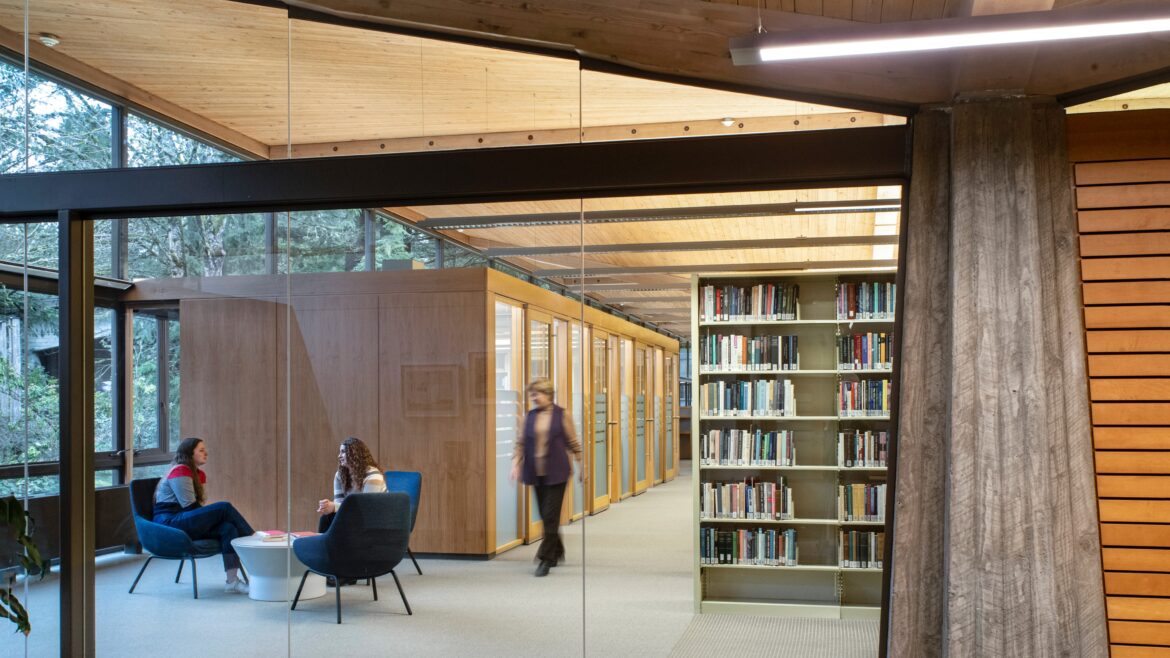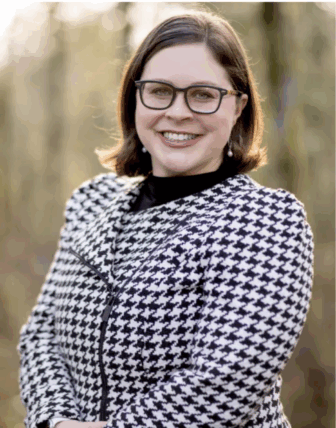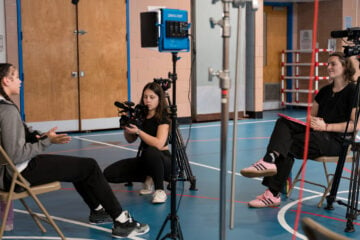OPB project assists local newsrooms with public records requests

Courtesy of Pete Eckert via Lewis & Clark College
The Boley Law Library at Lewis & Clark Law School in Portland, Ore., which will offer a program in the fall on Oregon public records law.
Oregon newsrooms seeking access to public records will have more legal support this fall under a pilot project from Oregon Public Broadcasting and the Lewis and Clark Law School in Portland.
The Public Records and Government Transparency Project will train law students and provide free legal services to local newsrooms that need help disputing fees or denials of their public records requests.
The one-year pilot program will train six law students each semester. They will attend a weekly seminar taught by two OPB lawyers and gain experience by working with volunteer attorneys for up to 10 hours per week. The volunteer lawyers, who are external to OPB and the law school, will oversee the students as they help journalists across the state gain access to public records.
Lewis and Clark Law School plans to publish an intake form in July for journalists seeking help with their records requests, said Jo Perini-Abbott, professor of practice and director of the Center for Advocacy at Lewis & Clark Law School, who helped develop the project and its underlying curriculum.
In development since November, the project builds off of a longstanding relationship between OPB and the law school, said Rebecca Morris, OPB VP and general counsel. Her office has long hosted externs from the law school.

The initiative aims to improve access to public records at a time when Oregon journalists’ requests for them have become more and more costly, with fees sometimes in the thousands of dollars, according to Investigate West. Its 2024 investigative report found that public records offices can use fees to convince requesters to narrow the records they want to access and to deter vexatious requesters who repeatedly seek unreasonably large swaths of information.
In announcing its public records project, OPB said it is currently the only media organization in Oregon with in-house counsel to assist with records requests.
The initiative relies on existing OPB resources and is unlikely to be affected by potential CPB funding cuts, said Morris. OPB receives about $5 million from CPB annually, about 9% of its budget.
The project’s pilot year also fits with OPB’s overall strategy, Morris said. She hopes to see the program expand after the pilot phase.
“It’s a lot of test and learn. Start small, move quickly, see what you can do and build from there,” Morris said. OPB President and CEO Rachel Smolkin, who began leading the state network last September, “really liked the light touch, the quickness and also just the real collaboration and focus on adding benefit to the community, adding benefit to journalism, adding experience for the law students, building more lawyers in the state of Oregon with this kind of experience.”
How the program will work
After a journalist submits an intake form, one of the volunteer attorneys will evaluate the request. They will weigh public interest considerations, consider whether there’s a valid legal case for disputing a denial or fee, Perini-Abbott said. They’ll also evaluate the pedagogical value of taking on the case for students.

If the attorney decides the case has merit, a student will begin working on the case under their supervision.
At this early stage, the partners don’t have a set limit on the number of requests the project will be able to take on. The students will collectively work up to 60 hours each week, Perini-Abbott said. As the project progresses, they’ll see how many cases the students’ working capacity will allow.
“A really important point for this is that we are all going to be learning,” Morris said. “The students will be learning. We will be learning. What is the appetite? What is the need? What is the interest from the students? … It’s a test and learn, and I’m just really excited to see what we learn.”
While the project partners may not know the size of the caseload, they are aware of the need for this kind of work in Oregon.
The need: Fewer attorneys, higher fees
The number of practicing lawyers in Oregon with expertise in public records and First Amendment law is shrinking, Morris said. This problem is part of what the project hopes to help address.
“When newspapers and other media outlets need legal support, they may not be getting support from lawyers who know the ins and outs and the tricks of making these arguments,” she said.
With that in mind, she said the project has several goals: provide services to local journalists and newsrooms that likely otherwise could not afford them, train students with practical experience and get more information out to lawyers in the state about public records law.
The project could also help news organizations in what Perini-Abbott called rural legal deserts, including areas in multiple states where lawyers aren’t available within a 100-mile radius.
“Ensuring that this is a skill set that gets carried out to legal deserts is an important thing that the program can do,” she said.
Data aggregator companies are another complicating factor, Morris said. Requests from data aggregators have increased so much that local public records offices — which are often under-resourced — might deny fee waivers out of need to fund their operations.
Records offices sometimes deny fee waivers, even those with a legitimate public interest, because they’re trying to recoup their expenses, she said. “They’re trying to keep their processes going.”
Morris also pointed to several bills pending in the Oregon State Legislature that propose to limit access to public records, observing that they are “trying to make things harder in interesting ways.” The legislative session concludes June 29, making the fate of these bills uncertain at Current’s deadline.





